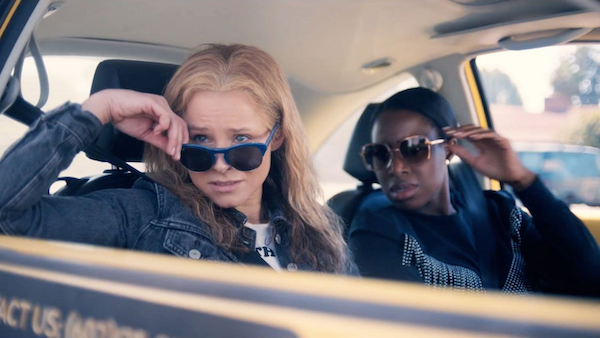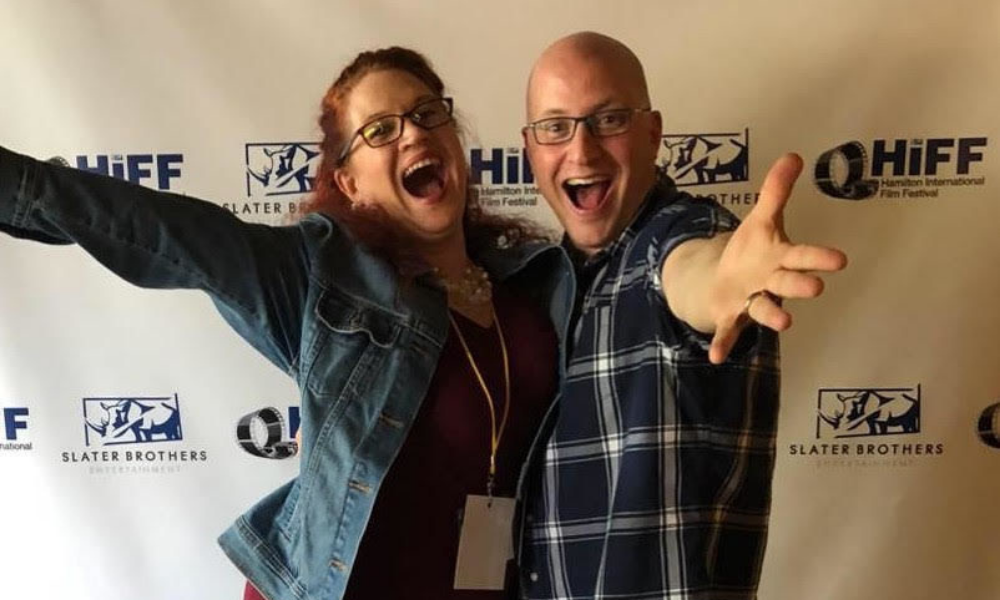Ask the Expert: Writing Partnerships
Q: A friend and I are thinking of forming a writing partnership. What’s a good way to work together and what are the advantages and disadvantages? A: In our book,…
Q: A friend and I are thinking of forming a writing partnership. What’s a good way to work together and what are the advantages and disadvantages?
A: In our book, in Show Me The FunnyA Seat At The Table With Hollywood’s Top Comedy Writers, (Sterling Publishing), we gave twenty-six writers a generic comedy premise about a mother who has to move in with her grown daughter when her husband dies suddenly and she discovers she’s broke. We asked them to develop it. We told them there were no rules, no boundaries…they could go any way they wanted with it. That was just as well since they are writers not accountants; they wouldn’t have followed our instructions anyway.
We interviewed four successful writing teams and can show you how they work…very successfully. As you read Marc Sheffler and Paul Chitlik’s interview (Whose the Boss? Harry and the Hendersons), notice how an idea one partner has triggers an idea in the other. When Marc and Paul begin developing the premise in Show Me The Funny, Paul yells out, “My cousin just moved to Phoenix where tons of old people are retiring.” Marc says, “Jews Don’t Square Dance.” Paul says, “Square dancing is really hot. Everybody gets laid after a square dance…little known fact.” One of them suggests that it might be better to set it in San Bernardino because it’s similar desert country, but closer to LA which they know more about. The other says, “That’s where the Hell’s Angeles started.” “The story could be set in a Harley Shop,” his partner says. “Yeah, and they only turn out two bikes a year because the shop is populated with ex-cons who are really using the shop as a front to sell crystal meth.”
Marc and Paul work by going back-and-forth. They keep spit-balling in the room, but they don’t write the script together. One of them takes a pass at a draft of the script. When he finishes it, he emails it off to his partner and he takes a shot. This process continues until they agree that the script reads like one person wrote it. That, they say, is the greatest challenge and the greatest reward of their partnership.
By contrast, when Cinco Paul and Ken Daurio (Santa Claus 2, Bubble Boy, Dinner for Schmucks) work, as one gets an idea the other partner immediately begins to embellish it. Cinco and Ken change the premise from a mother and daughter to a father and son. One partner suggests they make the father a retired jingle writer who created jingles for famous products. His partner immediately says, “Like, ‘plop, plop, fizz, fizz.’” The other says, “’I’m a Pepper, you’re a Pepper.’” They take the other’s idea and build on it.
Jon Stark and Tracy Newman (The Ellen DeGeneris Show) met at the Groundlings, LA’s premiere improv theater group. The key to improv is the ability to take any idea that is fed to you and build on it. Never block your partner. This background informs the way they work together. When either of them throws out an idea, the other grabs it and runs. In this way their method combines the best of Marc and Paul and Cinco and Ken. But, while improv is all about fluidity and dealing with surprise, Tracy embraces structure. This comes from her songwriting background and gives her a strong sense of story. In the role-reversal premise they develop for Show Me The Funny, an adult daughter is forced to take care of the mother she has been taking care of her entire life. If Marc and Paul’s spit-balling approach doesn’t work for you might try Tracy and Jon’s. Tracy insists on figuring out where a story is going before writing a word of the script. Once that happens, Jon steps in and develops character and dialogue. This combination has a lot to do with the success of this Peabody and Emmy Award–winning team’s amazing success.
Bill and Cheri Steinkellner wrote for Cheers and Taxi. The big difference between them and the other writing teams is they’re really partners…they’re married. They turn the mother and daughter premise into a cautionary comedic story about what happens when a divorced empty nester becomes a “helicopter mom” who follows her children to college.
As we sat with them at their kitchen table they threw in stories about their own children, their own foibles and spun them into gold. They have the gift of taking real people they know and real events they saw or heard and exaggerating them until they become more believable than the material they are based on. Where most partnerships are done at the end of the day…Cheri and Bill’s is 24/7. It was a challenge for us to figure out where the marriage ends and the writing partnership begins.
So what are the disadvantages of a writing partnership? Picking the wrong person to work with. Peter Casey (co-creator of Wings and Frasier)tells the story of being a new writer on Cheers when a team came in and pitched. One of the fabled Charles Brothers said, “I don’t think our characters would do that.” One partner turned to the other and said, “See, I told you.” Peter laughs and says, “That’s not the guy you want to have for a partner.”
Another potential disadvantage: studios and networks are getting two brains for the price of one. Be prepared to give up half your paycheck. On the other hand a partnership is a reliable cure for the loneliness of the long distance writer.
Finally, we asked every team the question, “How do you know if what you come up with is funny?” They had the same answer: “If I can make my partner laugh…it’s funny.”
# # #
Peter Desberg and Jeffrey Davis provide readers a unique glimpse into the intelligent and quirky inner workings of the comedic mind with their book Show Me the Funny! At the Writers Table with Hollywood’s Top Comedy Writers. The book presents 28 top comedy screenwriters from the revered figures of television's “Golden Age” to today's favorite movie jokesters. Desberg is a joke writer, California State University Dominguez Hills professor and a licensed clinical psychologist who specializes in the area of stage fright. Davis is a produced screenwriter, playwright and the Screenwriting Department Chair and associate professor of film and TV writing at Loyola Marymount University. Find out more information by visiting www.smtfo.com or ‘like’ them on Facebook.com/SMTFfans. More info at www.smtfo.com
Top screenwriting and film publication, founded in 1989, published by Active Interest Media. Twitter: @scriptmag







